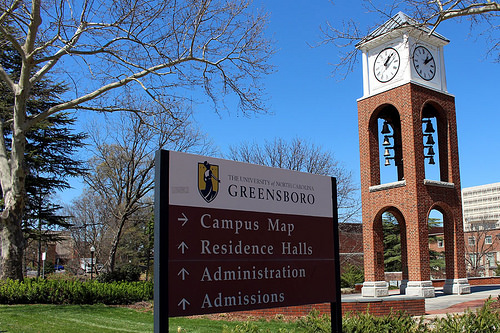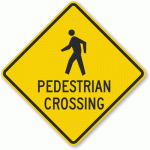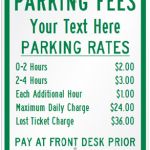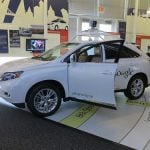Student parking passes: environmental and policy implications
College students are interested in reducing greenhouse gases, and one of the top ways to address climate change is via new transportation habits. A new study, “Factors associated with students’ parking-pass purchase decisions: Evidence from an American University” by Selima Sultana, investigates students’ tendency to purchase parking passes, and its implication on a school’s goal of becoming carbon-neutral.

A study shows that students end up purchasing parking passes from colleges when those colleges slack off on offering alternatives. Image from eIntern.
By studying web-based survey data hailing from the University of North Carolina at Greensboro, researcher Sultana discovered a few key findings about the factors that increase the chance a student will purchase a parking pass.
First off: Why does parking pass usage matter? As the author writes, climate change has brought about a general agreement on college campuses to reduce greenhouse gas emissions. As part of the University of North Carolina system, the campus in question, UNC Greensboro, is mandated to be carbon-neutral by 2050. Transportation-related emissions are the second-biggest contributor to a college’s carbon footprint, making alternative transportation — and reduced parking — prevalent for students.
The survey involved 2,253 participating students, with 86.9 percent living off campus and 13.1 percent living on campus. Over 62 percent said that a single-passenger car was their primary mode of transportation, and about 6 percent said they carpooled. Yet only 37.4 percent of these car commuters had parking permits.
As the author notes, despite the large proportion of regular car-commuters, about 50 percent of these did not have a parking pass. (Reasons for driving to campus also impact the parking-pass purchase decision: Speed, environmental concerns, convenience, and saving money were the top-ranked reasons for those driving to campus.)
There are five main factors that influence car pass purchases: the first, socio-demographic factors. The author is able to sketch a profile of the most likely car parking pass purchaser: “Students who enroll full-time, own a car, live in a home either owned by themselves or their parents, female, non-Hispanic whites, and parents earning more than $50,000 annually,” as the author describes the likely candidate.
The second factor: psychological motives, such as daily car use habits, and the third was found to be distance from campus. Fourth: the fact that students may choose to live closer to campus to opt out of using parking permits altogether. The fifth and final factor is the impact of the built environment: The study found that younger students are less likely to have a parking pass, yet features of the built environment, like bike lanes, sidewalks and bus stops, have no significant influence on parking pass purchase.
Each of these five factors, however, doesn’t exert the same impact. In fact, the majority of these students chose parking passes based on how easy it is to find a space and convenience, rather than how much money they’d save.The predominant factors in making a parking-pass purchase, writes the author, are car ownership, car-use habits, and mobility needs (which are in turn predicted by socio-economic factors, like students’ parents’ income), while the built environment where students live accounts for only a little influence. Other factors, like gender, race/ethnicity, income, and environmental concerns, have little to do with buying a pass.
So, what are the takeaways? Schools that intend to cut down on on-campus parking and, in doing so, reduce their environmental impact, should consider the host of influences that impact parking pass purchases and provide the right alternatives.
One option: restricting parking to on-campus students, but also offering hourly Zipcar rentals. UNC Greensboro in particular might abolish on-campus free parking, suggests the author, or provide more housing options within five miles of the school in addition to alternative options, such as bike lanes, sidewalks and transit. Learn more: Read the study in full online.
Related Posts
Category: Parking Tech, Transportation

















